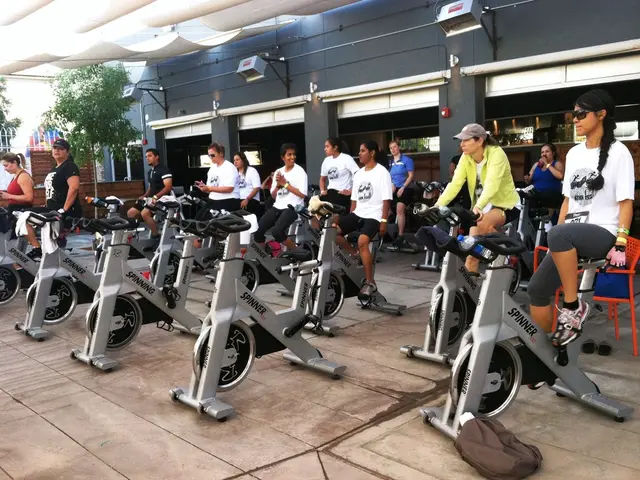Enhance Your Running Performance: Focus on Mental Resilience
Enhancing Running Performance: The Role of Mental Strength
Running performances are not solely dependent on physical strength; mental strength plays a significant role as well. Dr. Sara P.D. Chrisman, an associate professor at the Sports Institute at UW Medicine, provides insights into how runners can use mental, physical, and social strategies to tackle challenges on race day.
Understanding Mental Strength
Mental strength isn't about sheer determination or enduring discomfort. Instead, it involves forming a relationship with your body to manage stress effectively. "Mental strength," explains Chrisman, "is much like building physical strength – you can get better at being resilient."
The key lies in recognizing how your body reacts under stressful circumstances, such as nervousness and anxiety. Stress arises when the nervous system releases brain chemicals into the bloodstream, triggering the fight-or-flight response. With practice, however, runners can refocus and reset their mindset to continue the race.
Mental strength begins with emotional awareness – observing and accepting your emotions before deciding how best to respond. By finding suitable coping mechanisms, such as running a recovery lap or listening to music, runners can ease their emotional turmoil and return to the race with their focus restored.
Building Mental Strength
Developing mental strength takes time and commitment. Dr. Chrisman outlines three key strategies for runners to build their mental strength:
- Fostering MindfulnessWhen runners feel overwhelmed, resisting their bodies can lead to failure. Instead, Chrisman suggests establishing dialogue with your body to unite your mind and body toward a common goal. Developing mindfulness helps runners navigate difficult situations and refocus their attention.
- Fueling the BodyA well-nourished body is better equipped to handle stressors. Prioritizing diet, hydration, and rest enhances overall performance, making it easier for runners to manage emotions on race day. Getting adequate sleep, especially, significantly improves speed, endurance, and reduces injury risk.
- Joining a Running CommunityRunners are not alone on their journey. Tapping into relationships with fellow athletes offers social support that can boost mental health and increase self-confidence. Sharing thoughts and frustrations can also help runners maintain accountability in their training.
Approaching Race Day
Listening to one's body is crucial on race day, and acknowledging signs to slow down or take a break forms an essential aspect of mental strength. Runners should embrace challenges, whether they are the much-dreaded "wall" or other discomforts, to cultivate resilience and grow as athletes.
By implementing mental, physical, and social strategies into their training, runners can progressively build mental strength and optimize their running performance.
- Mental strength, as described by Dr. Sara P.D. Chrisman, is not merely about enduring discomfort or demonstrating sheer determination; it involves forming a productive relationship with your body to manage stress effectively, much like building physical strength.
- On race day, understanding mental strength is vital for runners, as it can help them navigate challenges by focusing on refocusing and resetting their mindset, instead of succumbing to stressful circumstances such as nervousness and anxiety.
- Developing mental strength takes time and commitment, with strategies like fostering mindfulness, fueling the body through proper diet, hydration, and rest, and joining a running community for social support playing integral roles in overall well-being and performance.
- Building mental strength also includes coping mechanisms, such as running a recovery lap or listening to music, that help runners handle emotional turmoil and restore their focus during a race.
- Embracing challenges, whether they are physical barriers like the "wall" or other discomforts, can help runners cultivate resilience, improve their running performance, and maintain a holistic approach to fitness-and-exercise and health-and-wellness, leveraging the intersection of mental health, science, news, and sports.







